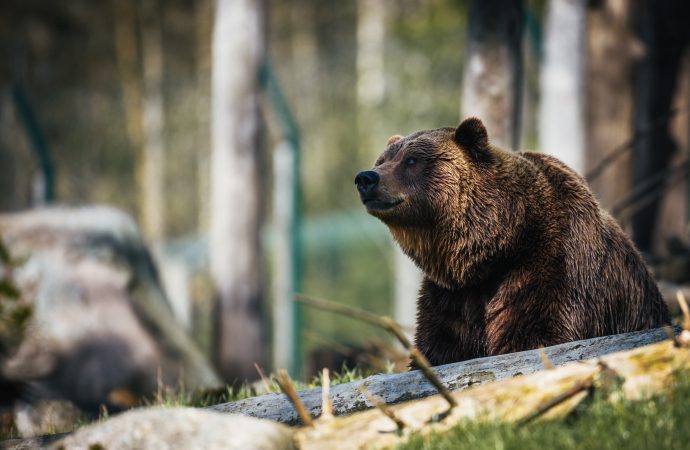Bear bile farming, a practice prevalent in many Asian countries, has been the subject of much controversy and condemnation over the years. The practice involves keeping bears in small cages and extracting their bile for use in traditional medicine. Not only is this practice inhumane and cruel to the bears, but it also has a
Bear bile farming, a practice prevalent in many Asian countries, has been the subject of much controversy and condemnation over the years. The practice involves keeping bears in small cages and extracting their bile for use in traditional medicine. Not only is this practice inhumane and cruel to the bears, but it also has a devastating impact on our environment and wildlife. In this article, we will explore the environmental impact of bear bile farming and why it is crucial to put an end to this practice.
One of the biggest environmental impacts of bear bile farming is the depletion of natural resources. The practice requires large quantities of water, energy, and land to operate, which can have severe consequences on the environment. The process of extracting bile from bears requires water, which can lead to the depletion of local water sources. Additionally, the bears are often fed a diet of corn and soy, which requires significant amounts of land and energy to produce. This contributes to deforestation, soil erosion, and greenhouse gas emissions.
Bear bile farming also has a significant impact on wildlife. Asiatic black bears and moon bears, the two species most commonly used in bear bile farming, are already endangered due to habitat loss and poaching. The continued practice of bear bile farming only exacerbates this problem, as it puts additional pressure on already vulnerable species. The bears are often kept in cramped conditions, which can lead to the spread of disease and the transmission of viruses to other wildlife.
Furthermore, the extraction of bile from bears is a painful and traumatic process that can lead to serious health problems, including infections and tumors. The bears are often given antibiotics and other medications to treat these conditions, which can enter the ecosystem and have unintended consequences on other wildlife. The use of antibiotics in livestock has been linked to the emergence of antibiotic-resistant bacteria, which pose a significant threat to human health.
Governments and animal welfare organizations have been working together to end bear bile farming and promote alternative treatments. One alternative is synthetic or plant-based bile, which has been proven to be just as effective as bear bile in traditional medicine. Additionally, governments can support alternative livelihoods for bear farmers, such as ecotourism or sustainable agriculture, to reduce their reliance on bear bile farming.
In conclusion, bear bile farming has a devastating impact on our environment and wildlife. The practice requires significant amounts of water, energy, and land to operate, which can contribute to deforestation, soil erosion, and greenhouse gas emissions. It also puts additional pressure on already vulnerable species, such as the Asiatic black bear and the moon bear. It is time for us to take action to end this barbaric industry and support alternative treatments that do not involve animal cruelty or environmental degradation. We must support the efforts of animal welfare organizations and advocate for change to protect our environment and wildlife.

















Leave a Comment
Your email address will not be published. Required fields are marked with *